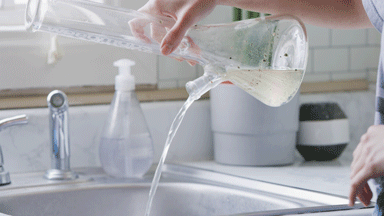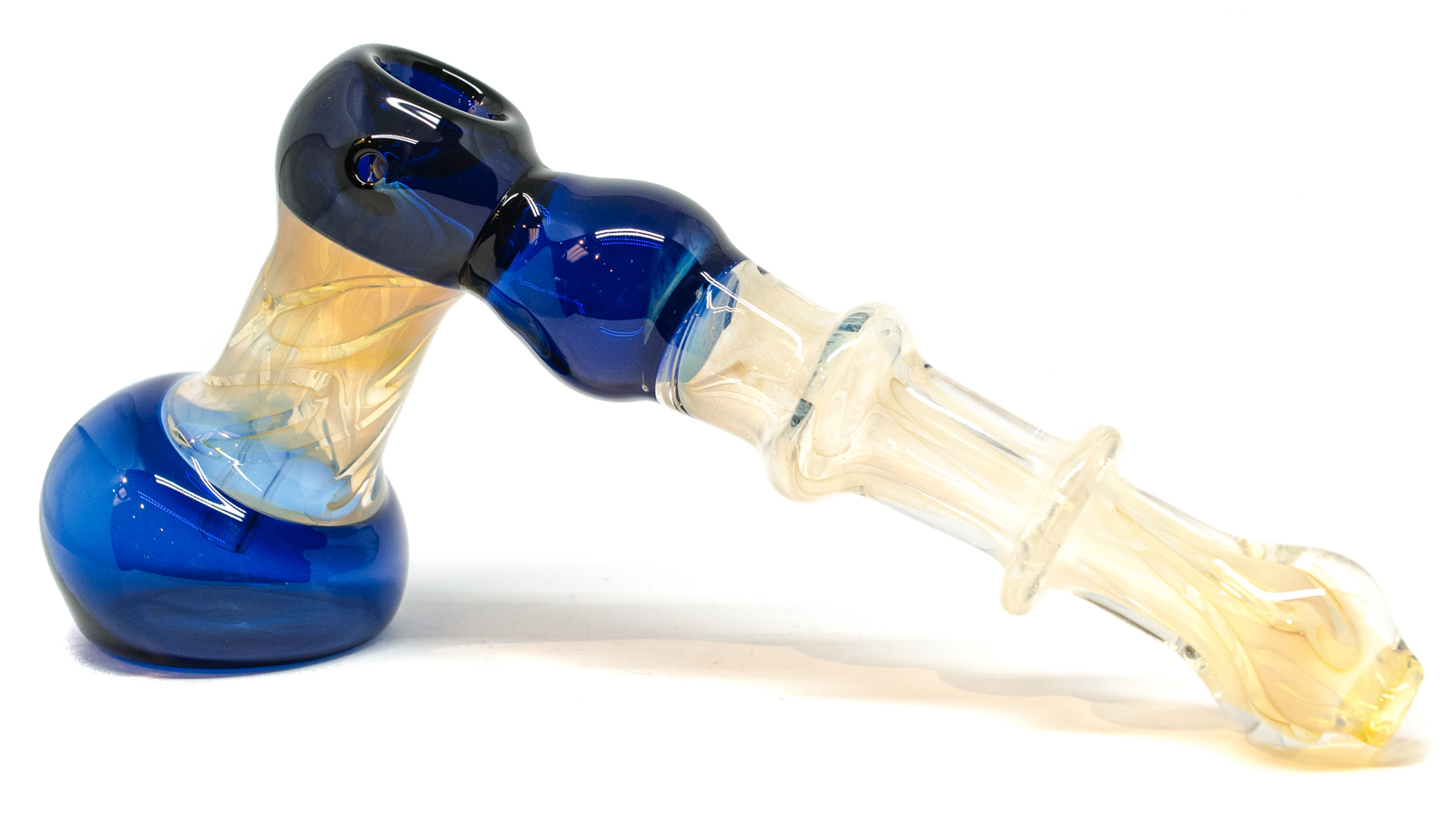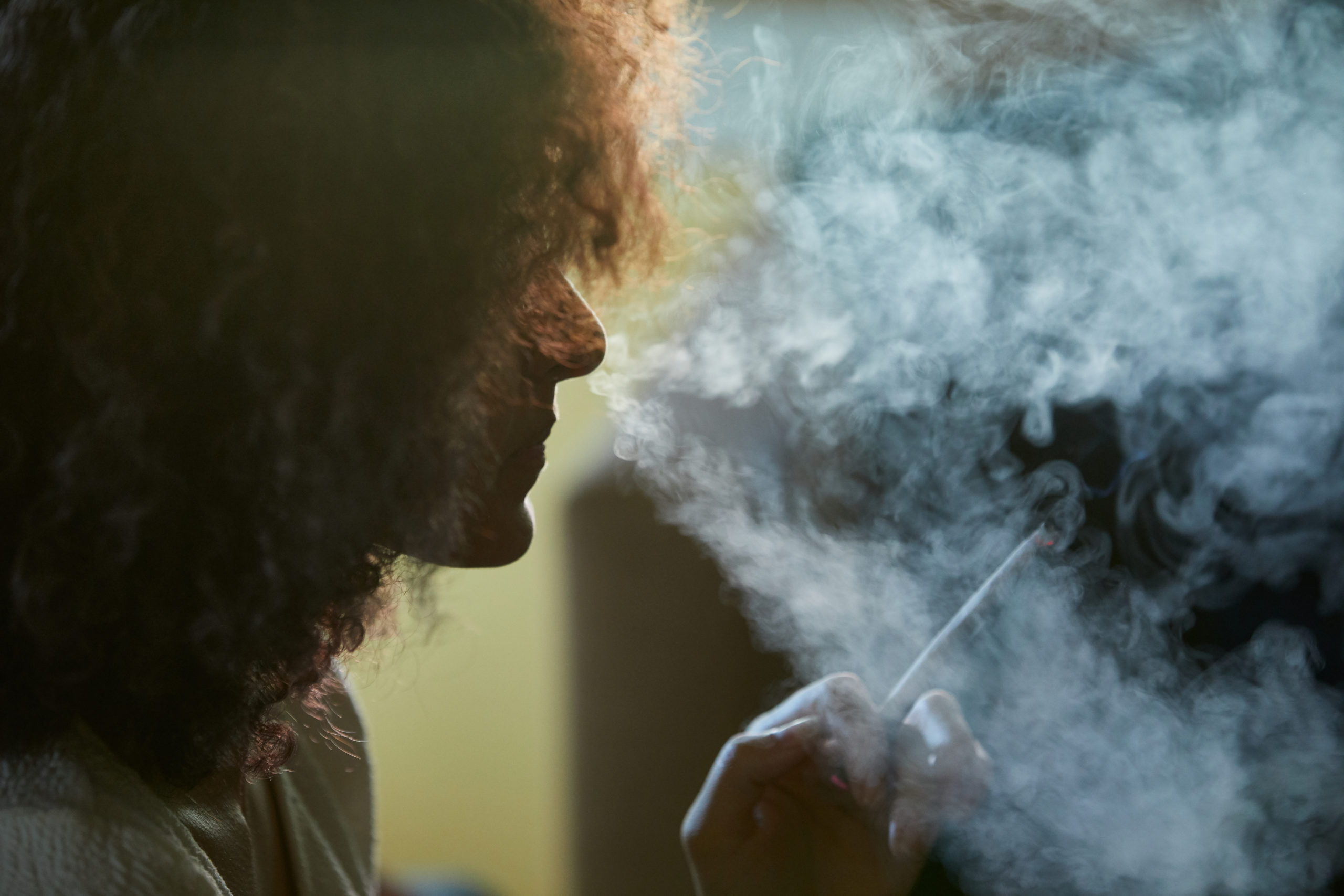If you're a frugal cannabis consumer, you may have wondered if drinking bong water could get you high. Here you'll learn why drinking bong water is always a bad idea (and gross) and why it's important to clean your bong regularly.
What is bong water?
Bong water is contained within a bong or water pipe. These devices use water to filter out potentially harmful chemicals so that you don't inhale them when you take a drag. Because of its filtering function, bong water quickly becomes dirty and can be hazardous to consume.
 Photo by: Gina Coleman/Weedmaps
Photo by: Gina Coleman/WeedmapsImage lightbox

Will bong water get me high?
Dr. Melanie Bone, board-certified OB-GYN and cannabis specialist, was emphatic: “No. Contrary to urban legend, bong water does not get you high. Cannabinoids like THC and CBD are not water soluble.” While there's no chance of active THC lingering in bong water, there are probably some other less desirable substances lurking there. Ash, tar, and bacteria from anyone you share the bong with remain in the water, according to Bone.
Can drinking bong water make me sick?
Psychoactive effects won't result from drinking dirty bong water, but gastrointestinal symptoms might.
How exactly can you get sick from bong water? Bone explained that sickness can occur from several sources, including “infection and direct effect of residual elements of cannabis consumption.”
Dirty bong water may also contain fungi, mold, yeast, and other microorganisms. It can be so contaminated that you shouldn't even use it to water plants since you could be exposing them to harmful mold. With all the possible substances that could be lurking in bong water, there is a strong possibility of getting sick if you drink it.
If you're not using bong water to get high or water plants, then what should you do with it? Pour dirty bong water down the drain and make sure curious pets and children do not have access to it under any circumstances.
The importance of cleaning your bong
Clean water should be a part of every bong session. Drinking bong water is a bad idea and so is reusing it, especially if you notice a cloudy top layer forming. Known as biofilm, this murky layer could be hiding pathogens such as Strep, E. coli, and black mildew.
 Photo by: Gina Coleman/Weedmaps
Photo by: Gina Coleman/WeedmapsImage lightbox

You also need to clean your bong on a regular basis, preferably after each use. Patience is in order when cleaning a bong, as it can be an arduous task due to sticky resin buildup. Cleaning a bong frequently can help save you time and elbow grease as residue is less likely to be a challenge.
Household supplies like rubbing alcohol, coarse sea salt, and towels are good for cleaning bongs. Using fresh water each time and keeping your bong clean will not only facilitate a healthier smoking experience but can also help the apparatus last longer. A good quality, well-maintained bong can last for years.
Bottom line on drinking bong water
The idea of drinking bong water can be summed up in three words: don't do it. Instead, keep your bong clean and ready to deliver a smooth hit every time with fresh water.



